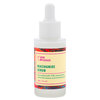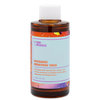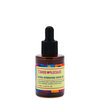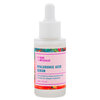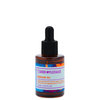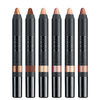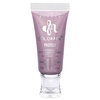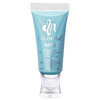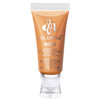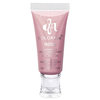Counter Confidential: Beauty School Dropout
Published Jan 20, 2013

"Beauty School Dropout"
by Undercover Beauty Agent
I’ve been asked numerous times if I went to makeup school—especially by my clients when they’re really excited about a look I’ve created. I haven’t, and I’m not ashamed to say it. That doesn’t mean I’m a bad makeup artist or that I don’t know what I’m doing. And, it’s not that uncommon. In fact, most of my co-workers and other artists I know haven’t gone to a school for makeup.
Deciding whether to go to makeup school can be a difficult decision. The cost might be too expensive; you might not be able to find a school that offers the courses you want; and it still might not give you the credentials you need for certain jobs, like movie sets. Schools can help you learn the basics every professional needs to know and give you the confidence to enter the work field, but school isn’t for everyone. Sometimes working at a makeup counter is the better move, and it may even lead to some amazing career opportunities. It depends a person’s individual drive and goals. Let’s try weighing the pros and cons so we can help you decide whether you’re beauty school bound!
Going to Makeup School
Remember that makeup school is different from cosmetology or esthetician school—so do your research. A job as a cosmetologist or an esthetician requires a license, and each state varies on the requirements. While these schools may offer makeup classes, these schools focus on other areas such as, hair or skin care. Be sure the school is a licensed institution like Make-Up Designory, Vancouver Film School, or EI School of Professional Makeup. Consider what you really want to get out of the school, and how it may help you train for specific career goals, like learning special effects makeup or practicing couture looks.
PROS:
** 1. Learning Good Technique:** Schools are the best place to learn good technique. It’s a good testing ground to try new things and having good teachers there to guide you will only help improve your craft. The best part is you don’t have to worry about it being completely perfect right away. You’re there to learn. Technique can mean a lot of things. It includes deciding which brushes are best for use, learning how to create different shapes with liner, and understanding when, why, and how we contour. Certain looks demand a higher skill set when it comes to technique, especially when doing avant-garde or high fashion looks.
2. Learning Sanitation: Schools show you how to keep your brushes, station, and makeup sanitary. They focus on how to apply lashes and makeup to others properly, and those skills are so important they slowly become habit.
3. Learning Color Theory: Using a color wheel does not come naturally to everyone. Color theory is an extremely vital skill and well as knowing the simple geometry and planes of the face. When you’re working with different skin, hair, and eye shades, knowing complementary colors will always be useful in creating a cohesive look.
4. Building a Kit: A makeup kit is essential for freelance and wedding makeup. Knowing what tools to have can be daunting because there are just so many products to chose from. Many makeup schools help their students create a kit for their future clients and provide additional student discounts. Having a good well-rounded kit includes a variety of items and schools help you decide which ones are the most important.
CONS:
** 1. Money:** It’s expensive. It might not make sense to spend that much money on something you’re still unsure about. Keep in mind that while some schools do offer financial aid or grants, you’ll still have to worry about transportation, building your kit, or buying any other supplies like books.
2. Lack of Experience: Nothing replaces actual experience. Even when done with makeup school you might still have to work at a counter for some much needed “real world” experience. It might be a bit jolting the things people at counters ask for. Sometimes they’ll want foundations way too light or way too dark, and you’ll have to do it because you have to please your client. Mostly, clients are in a time crunch. The pressure of creating a good look that meets their standards really prepares you for the pace of an event such as a fashion show.
Working at the Counter
I skipped the makeup school step and went straight to the counter. I was a broke college student with a passion for makeup, and the counter was my salvation. I took some art courses and a theatrical makeup class in highschool, so I had some experience, but not enough to be able to pull off a professional look for a complete stranger. I’m not “licensed,” but I would never trade the experience I’ve gained working at the counter for anything.
PROS
1. Gaining Experience: Working at a counter, you’re exposed to all skin types, all skin colors, and you have to learn how to work under any circumstance. You working with real people who have real problems—acne, scarring, rosacea—and you learn how to overcome those obstacles. A stint at a makeup counter will help you in every other makeup job you’ll have.
2. Learning Social Skills: Easing someone into trusting you with his or her makeup takes time. The counter will teach you how to put your clients at ease while staying professional. You’ll always be aware of how to present yourself and how to communicate with your customers, honestly.
3. Diving into your Career: Many successful artists and brand founders got their hands dirty at the counter first. Jerrod Blandino started out by working at the makeup counter. He went on to create Too Faced Cosmetics.
4. Practice: At the counter, you’ll be able to practice your craft every single day. And with practice comes the ability to work faster and more efficiently. Definitely helpful during Fashion Week, right?
5. Private trainings: Sometimes working at the counter provides school-level education, too. Some brands offer private instruction when new products come out or a new line is introduced. Think of it as a crash course class. Some of these trainings last the entire day, while others are a few short hours. Either way, you’ll be leaving trainings with valuable information.
CONS
** 1. Selling:** Sometimes, working at a makeup counter can feel compromising. Your desire to be an artist can be overshadowed by your responsibilities as a sales associate. Helping your customers always comes first, and sometimes that means putting aside the brushes and glitter.
2. Stuck in a Rut: Working at a counter can take a lot of time out of the day. By the time you get home and rest your aching feet, you have no energy to pursue other things like freelance makeup work. Balancing your career goals with your dayjob can get difficult, but no one said it would be easy. No matter how demanding your real world job might, you should try to still pursue your passion. You don’t want to be stuck behind a counter if you no longer enjoy it.

Undercover Beauty Agent is just an average makeup artist at your local beauty counter who's reporting true stories exclusively for Beautylish: "I love what I do because I get to make people feel beautiful on a daily basis. I'm a beauty advisor in New York City by day and a secret beauty agent by night, totally ready to share all my insider secrets and gossip."
You Might Also Like
-
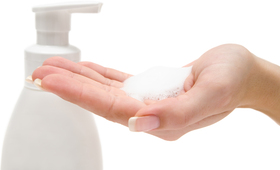
News
Beauty Etiquette: Makeup Counter Hygiene
- 83
-

Counter Confidential
Counter Confidential: Global Beauty
- 78
-
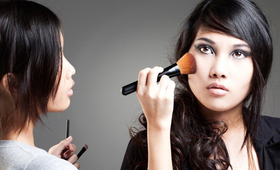
Counter Confidential
Counter Confidential: Beauty School Dropout
- 2218
-
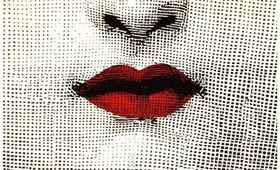
Red Lips
Beauty School: Smudge-Proof Lips
- 461
-

Counter Confidential
Counter Confidential: Buyer's Remorse
- 84
-
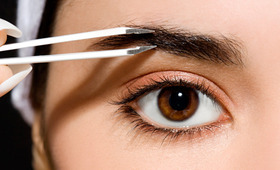
Counter Confidential
Counter Confidential: Brow Mishaps (and How to Stop Them!)
- 2748
-
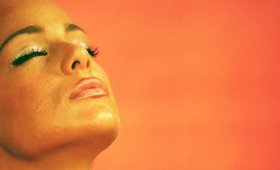
Counter Confidential
Counter Confidential: The Green Queen
- 62
-
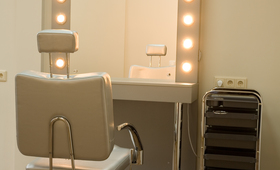
Counter Confidential
VIP Service At The Makeup Counter
- 48



 Undercover Beauty Agent is just an average makeup artist at your local beauty counter who's reporting true stories exclusively for Beautylish: "I love what I do because I get to make people feel beautiful on a daily basis. I'm a beauty advisor in New York City by day and a secret beauty agent by night, totally ready to share all my insider secrets and gossip."
Undercover Beauty Agent is just an average makeup artist at your local beauty counter who's reporting true stories exclusively for Beautylish: "I love what I do because I get to make people feel beautiful on a daily basis. I'm a beauty advisor in New York City by day and a secret beauty agent by night, totally ready to share all my insider secrets and gossip."